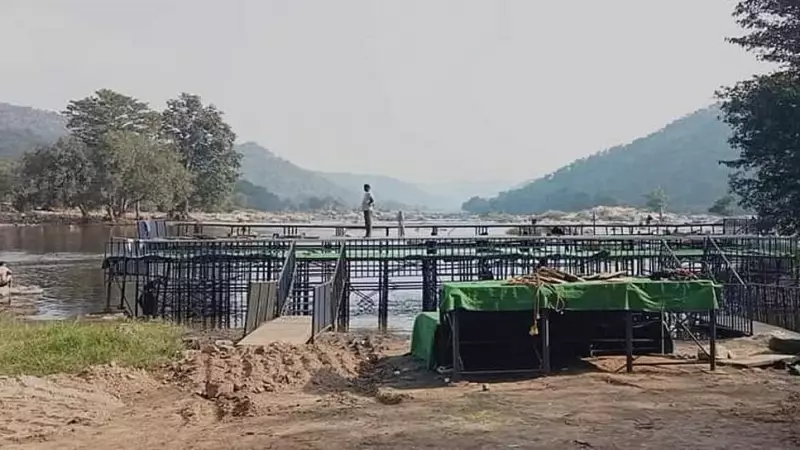
The Supreme Court of India has delivered a significant verdict in the ongoing Cauvery water dispute, declining to entertain Tamil Nadu's legal challenge against Karnataka's proposed Mekedatu reservoir project. The decision, announced on November 13, 2025, marks another chapter in the long-standing water sharing conflict between the two southern states.
Legal Battle Over Cauvery Waters
Senior advocates Mukul Rohatgi and P Wilson represented Tamil Nadu's interests before the apex court, presenting arguments that highlighted the potential adverse effects of the Mekedatu project. They contended that the proposed dam would significantly harm Tamil Nadu's agricultural community, which depends heavily on the Cauvery river water for irrigation and drinking purposes.
The legal team emphasized that Karnataka's initiative to build the reservoir across the Cauvery river could disrupt the existing water sharing arrangements established by various tribunals and court judgments over the years. Despite these compelling arguments, the Supreme Court bench decided not to consider the plea, allowing Karnataka to proceed with its project plans.
Farmers' Concerns and Interstate Implications
The rejection of Tamil Nadu's petition has raised serious concerns among farming communities in the state. Thousands of farmers in the Cauvery delta region depend on the river's water for cultivating crops, particularly during the crucial planting seasons. Any reduction in water flow could have devastating consequences for agricultural production and rural livelihoods.
The Mekedatu project, located near the border between Karnataka and Tamil Nadu, has been a point of contention since its proposal. Karnataka maintains that the reservoir is essential for meeting drinking water needs in Bengaluru and surrounding regions, while Tamil Nadu argues that it violates the Cauvery Water Disputes Tribunal's final award and subsequent Supreme Court modifications.
Future of Interstate Water Disputes
This Supreme Court decision comes at a critical juncture in India's approach to managing interstate water resources. The court's refusal to intervene at this stage suggests that Karnataka may proceed with necessary clearances and implementation plans for the Mekedatu project, though legal battles may continue through other avenues.
The development highlights the ongoing challenges in balancing water resource development with the rights of downstream states. Environmental experts and water management specialists have called for more collaborative approaches to river basin management, emphasizing the need for dialogue and scientific assessment of such projects' cumulative impacts.
As both states consider their next steps, the focus now shifts to whether alternative dispute resolution mechanisms or political negotiations might offer pathways to address Tamil Nadu's legitimate concerns while acknowledging Karnataka's development needs.





